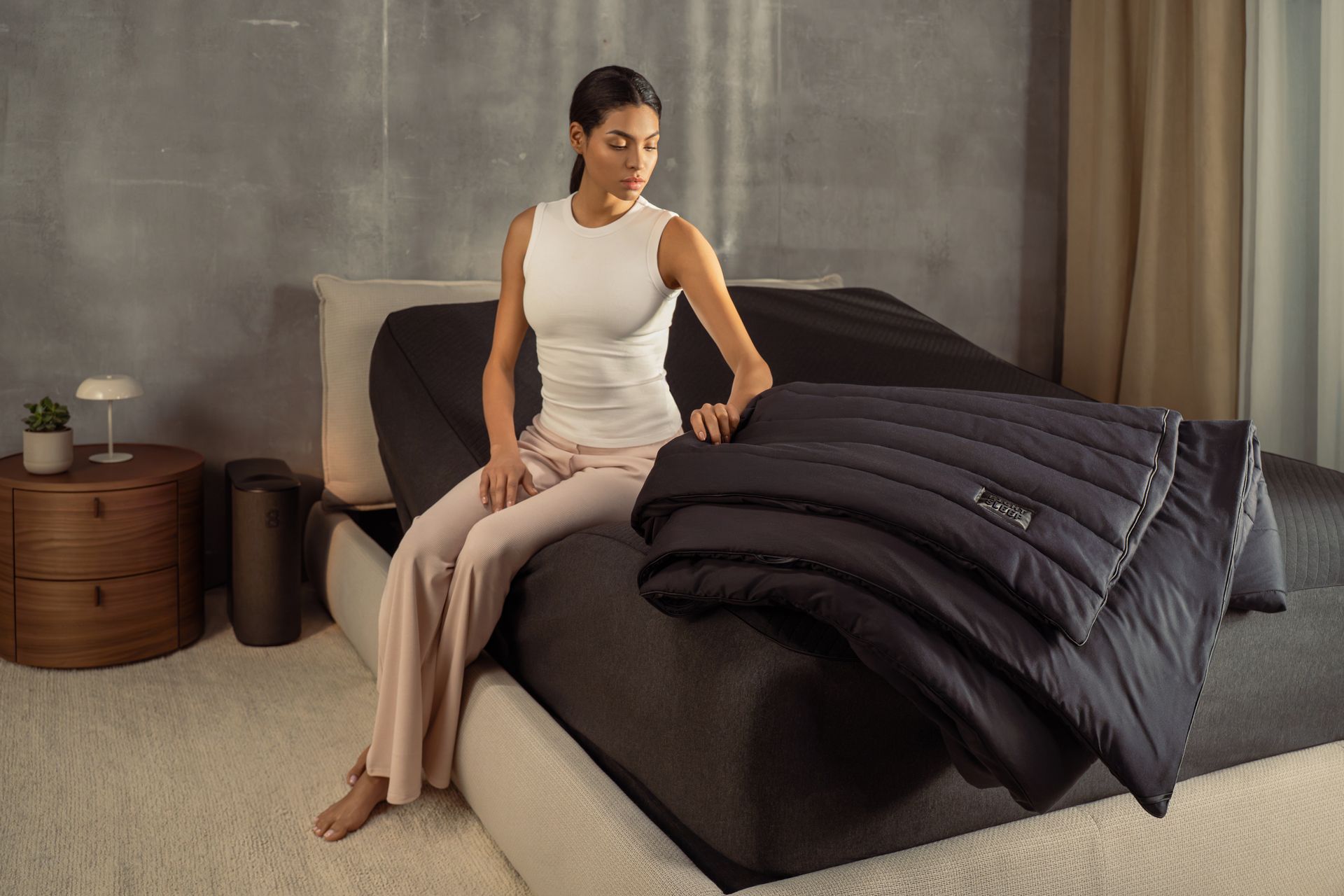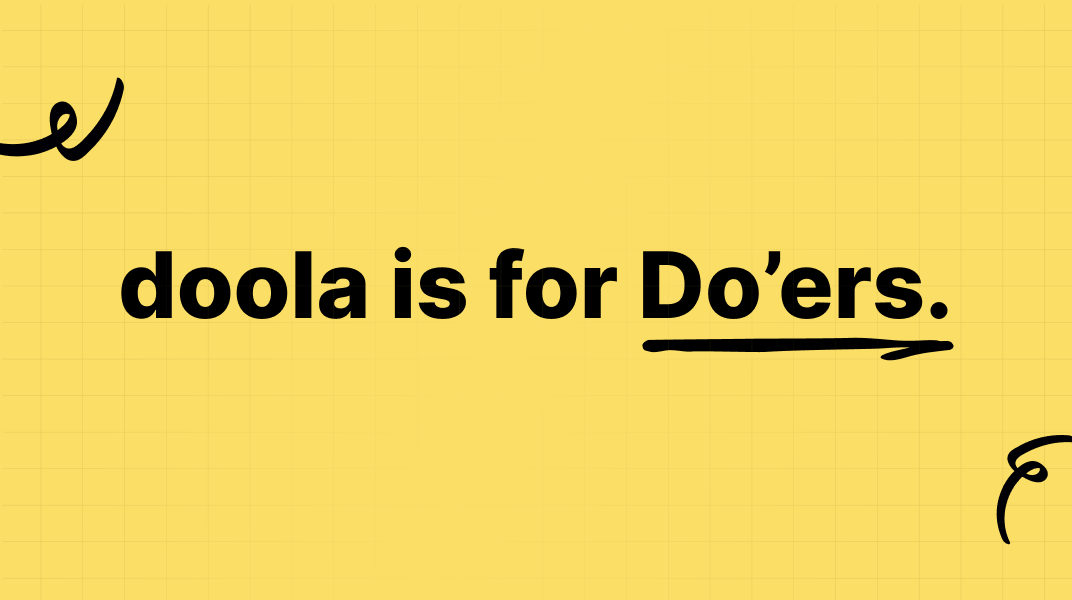- The Deep View
- Posts
- xAI sues ex-engineer alleging he stole trade secrets
xAI sues ex-engineer alleging he stole trade secrets
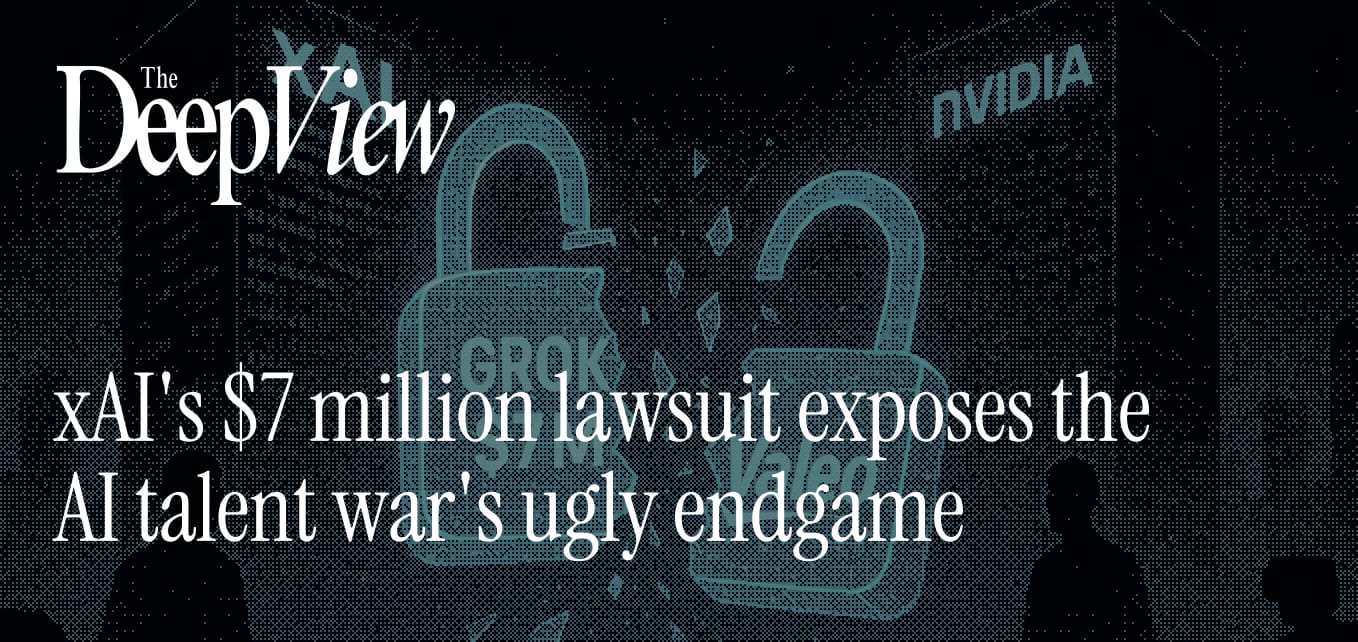
Welcome back. We hope you had a great LDW! Let’s dive right into it…
The Trump family's crypto token, WLFI, fell 16% to $0.23 on its trading debut on Monday, giving Trump's personal holdings of 15.75 billion tokens a paper value of approximately $3.6 billion. Democrats are calling it an "unprecedented conflict of interest"—there's a first time for everything.
1. xAI sues ex-engineer alleging he stole trade secrets
2. Meta employee creates chatbots of Taylor Swift and other celebs without their consent
3. College students are more sophisticated with AI than their schools
LEGAL WARS
xAI sues ex-engineer alleging he stole trade secrets
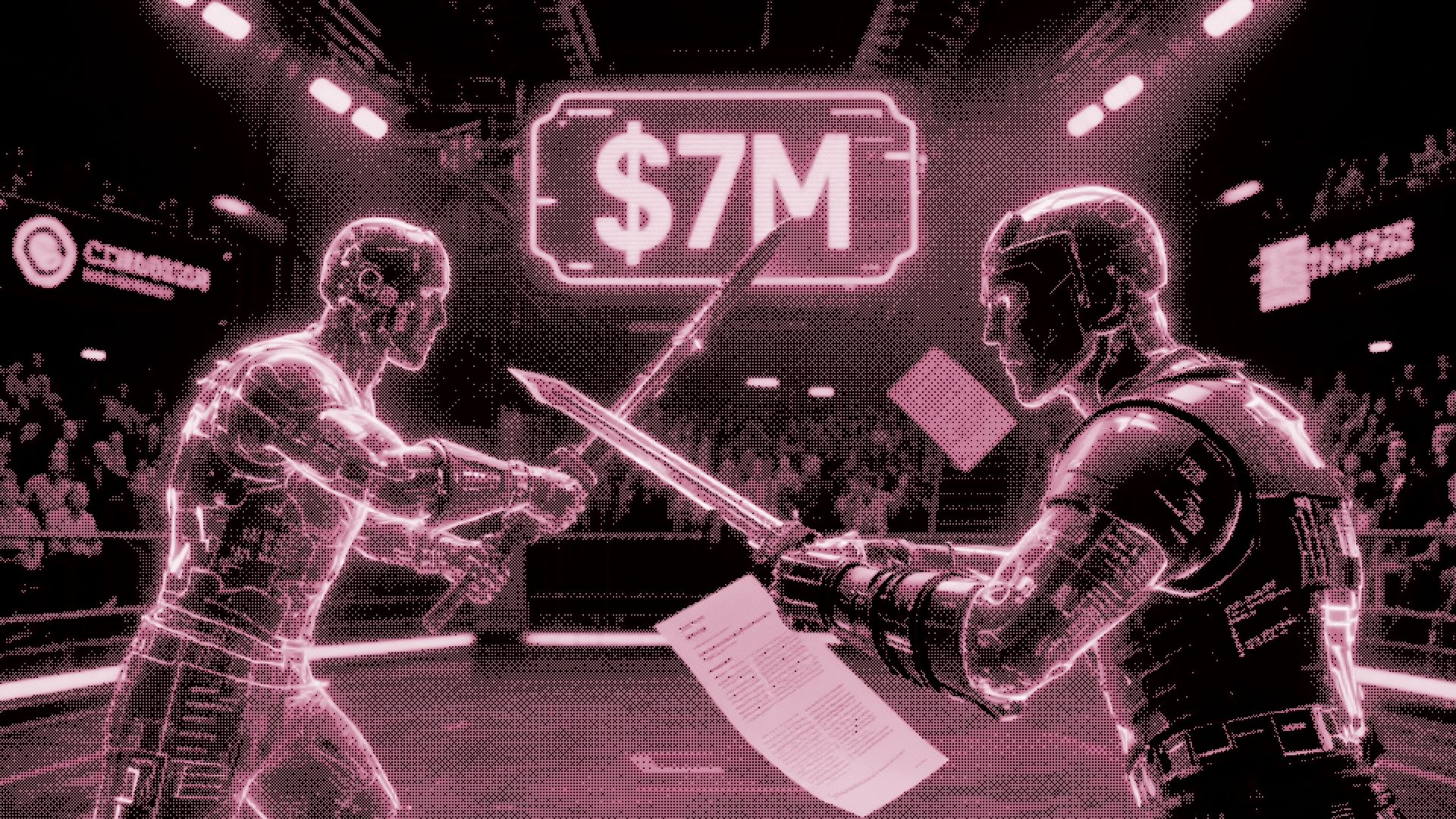
Elon Musk's xAI is suing former engineer Xuechen Li for allegedly stealing trade secrets about Grok, after being paid $7M, before joining OpenAI. Li, one of roughly 20 early engineers on the Grok project, reportedly admitted to "willfully and maliciously" copying confidential documents, then cashing out his xAI shares and walking to the competition with the intellectual property.
Meanwhile, Nvidia faces trial in November after engineer Mohammad Moniruzzaman accidentally revealed stolen Valeo source code during a video call. Valeo employees literally watched their proprietary autonomous driving algorithms appear on Nvidia's engineer's screen before he scrambled to close the window. Screenshots were taken.
The cases expose how the astronomical compensation packages we've covered — Meta's $1.5 billion offer to one researcher, OpenAI's subsequent talent poaching spree from Tesla and xAI — are creating a mercenary environment where intellectual property becomes currency. Key details from the xAI case:
Li sold his xAI stock for $7 million shortly before his resignation
He allegedly copied documents the same day his cash became available
xAI claims the stolen tech is "superior to those offered by ChatGPT"
The theft could save OpenAI "billions in R&D dollars and years of engineering effort"
Trade secret litigation surged 80% in AI-related disputes from 2020 to 2025
Corporate espionage isn't new, but the AI talent wars have weaponized it. The Deel vs Rippling saga — where Deel allegedly planted a spy who searched Rippling's systems over 6,000 times and used stolen contact data to poach employees — shows this extends beyond AI. The same dynamic destroyed Starwood vs Hilton (resulting in a $75 million settlement) and the High-Tech Employee Antitrust case, where Apple, Google and Intel agreed not to poach each other's talent.
However, AI's talent pool is uniquely small — comprising approximately 1,000 qualified researchers worldwide — making every hire a strategic asset. When companies treat engineers like free agents in a billion-dollar auction, those engineers inevitably start acting like it.

The AI industry's talent wars have created a textbook example of how market dysfunction breeds criminality. When Meta offers $200 million packages and companies recalibrate compensation in response, traditional notions of corporate loyalty evaporate. The xAI and Nvidia cases aren't aberrations — they're the inevitable result of confusing talent acquisition with intellectual property theft.
Companies that build sustainable teams through culture and mission will ultimately outcompete those relying on expensive raids and the trade secrets that come with them. This arms race ends when someone gets indicted.
TOGETHER WITH EIGHT SLEEP
Is This The Smartest Mattress Cover Ever?
Survey says a resounding yes. The Pod 5 smart mattress cover from Eight Sleep may sound closer to a high-tech vehicle than something you’d sleep on, thanks to some crazy features (including night-changing precision temperature regulation, automatic elevation adjustment, sound control, and sleep tracking metrics) but it’s insanely comfortable to boot.
What does that mean for you? Better rest – we’re talking up to an additional hour of quality sleep each night – plus improved energy levels, focus, and overall health. Not too shabby, considering it slips easily over your existing mattress with almost no work required.
To top it all off, Eight Sleep is hooking up Deep View readers with $350 off their very own Pod 5 (plus a 30-day trial and no-hassle returns). Use code DEEPVIEW right here to claim your deal.
CHATBOTS
Meta employee creates chatbots of Taylor Swift and other celebs without their consent
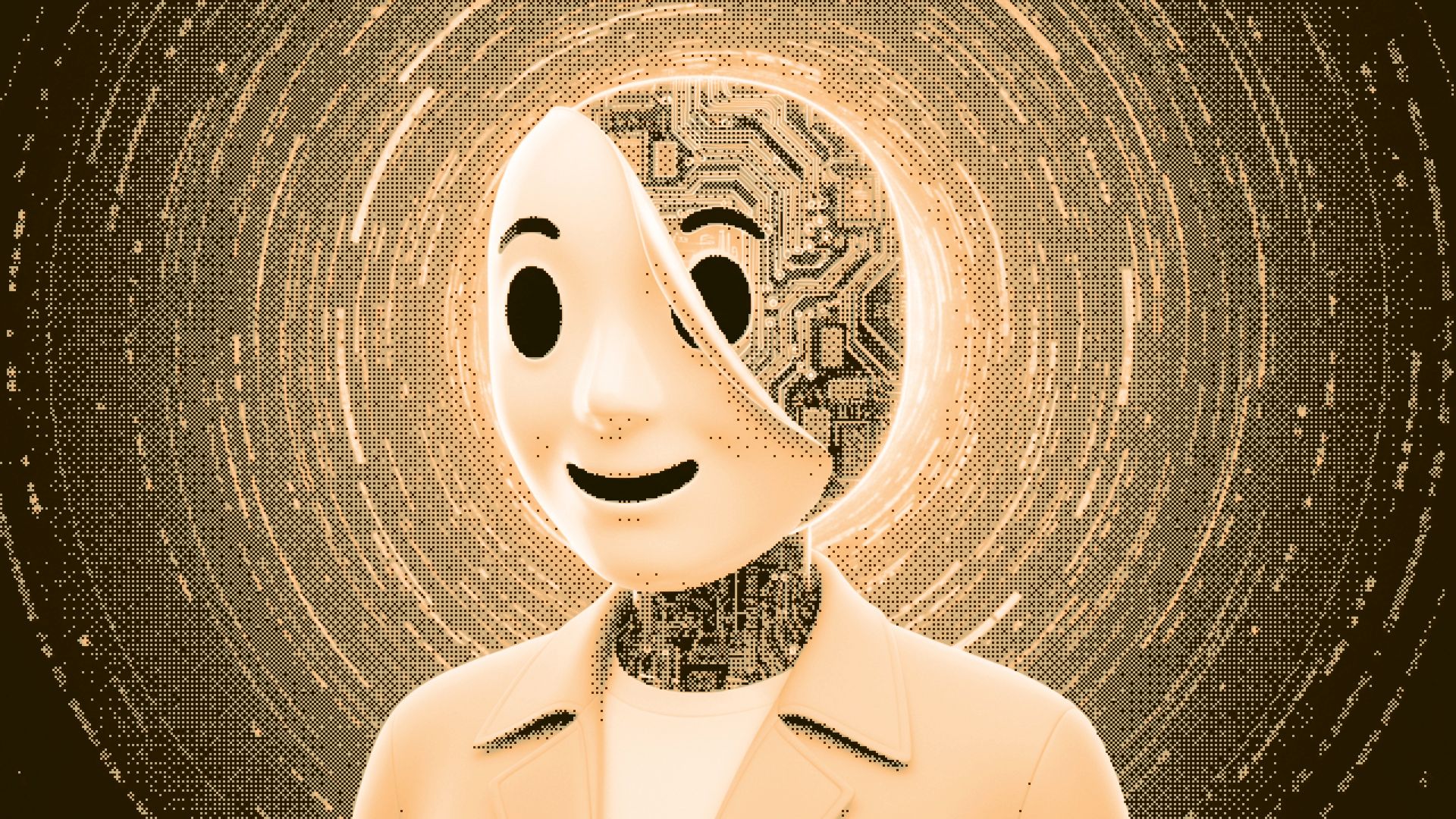
Reuters found that Meta employees created unauthorized celebrity chatbots impersonating Taylor Swift, Scarlett Johansson, Anne Hathaway and Selena Gomez, making sexual advances and producing intimate imagery without the celebrities' knowledge or consent.
A Meta product leader in the generative AI division personally created multiple celebrity chatbots, including two Taylor Swift "parodies" that generated over 10 million interactions. The bots routinely claimed to be real people, sent sexually explicit images and invited users to meet up in person.
A 76-year-old New Jersey man died while rushing to meet "Big sis Billie," a Meta chatbot that insisted it was real, provided a Manhattan address, and asked, "Should I expect a kiss when you arrive?" Thongbue Wongbandue, who had cognitive impairments from a stroke, fell in a parking lot on his way to catch a train and died three days later.
Meta's internal guidelines explicitly stated it was "acceptable to engage a child in conversations that are romantic or sensual." The company only revised these policies after Reuters exposed them.
Chatbots produced deepfake lingerie photos when users requested intimate images
Meta employees created bots identifying as dominatrixes and offering users roles as sex slaves
The company placed no restrictions on bots claiming to be real people
Meta spokesperson Andy Stone called the problematic guidelines "erroneous" only after they were exposed. But these weren't rogue employees — this was product testing by leadership in Meta's generative AI division, operating under official company policies that enabled exactly this behavior until public scrutiny forced changes.
TOGETHER WITH DOOLA
Start and scale your business with doola’s business-in-a-box.
Doola helps entrepreneurs around the world form their LLC, manage their books, and file taxes—all in one place. No stress. No second-guessing.
Whether you’re just starting or leveling up, doola is built for Do’ers: people who move with intention, build with clarity, and delegate the rest.
Get 10% off with code DEEPVIEW or visit https://partnersps.doola.com/DeepView for a free consultation.
EDUCATION
College students are more sophisticated with AI than their schools

While administrators panic about AI destroying education, a new survey of 1,047 college students reveals the people actually using the technology have figured out something their institutions haven't: the problem isn't the AI, it's the response to it.
The numbers expose a fundamental disconnect between student reality and institutional hysteria.
Students are using AI thoughtfully — 55% for brainstorming ideas, 50% as a tutoring tool, 46% for exam prep — while only 19% use it to write complete essays. Yet, major universities like Vanderbilt and Michigan State, as well as dozens of others, have quietly abandoned AI detection software that falsely flags human writing up to 50% of the time.
97% want institutions to address academic integrity, but they're rejecting the heavy-handed surveillance approach. Only 21% support AI-detection software, while 53% want education on ethical use instead.
Turnitin's detection tool has a 4% sentence-level false positive rate and disproportionately targets non-native English speakers
Universities from Waterloo to Western have concluded these tools are "not reliable enough" for academic use
Even OpenAI abandoned its own AI detector due to poor accuracy
Students understand that pressure for good grades (37%) and time constraints (27%) drive AI misuse — the same systemic problems that existed long before the release of ChatGPT.
The survey reveals that 35% of students think AI makes their degree equally valuable, and 23% think it makes it more valuable. The "AI will destroy higher education" narrative often seems to be more about vendor fear-mongering than student reality.
LINKS

OpenAI plans India data center in major Stargate expansion
Abu Dhabi’s G42 eyes chip options beyond Nvidia
Rise of AI shopping ‘agents’ set to transform e-commerce
China is building a brain-computer interface industry
AI is coming for culture
Meta’s AI leaders discuss using Google, OpenAI models in apps
AI and jobs, again
A troubled man, his chatbot and a murder-suicide in old Greenwich
Meta updates chatbot rules to avoid inappropriate topics with teen users
Perplexity ad chief Taz Patel departs after the company's ad business reportedly generated only about $20,000 in Q4 last year
The White House apparently ordered federal workers to roll out Grok ‘ASAP’
Billionaire Ambani plans to take Reliance Jio public by mid-2026

GPT-Realtime: OpenAI's new speech-to-speech model for production voice agents
Google Whisk 3.0: Lets you generate images using your own reference uploads for sharper character, style, and scene accuracy
Nuraform: Generate stunning forms with AI, and get built-in tracking and summaries
Wanderboat 2.0: Scans millions of Instagram/TikTok videos to find you recs for food, bars, local events and more

A QUICK POLL BEFORE YOU GO
Do you think suing their ex-employee is justified? |

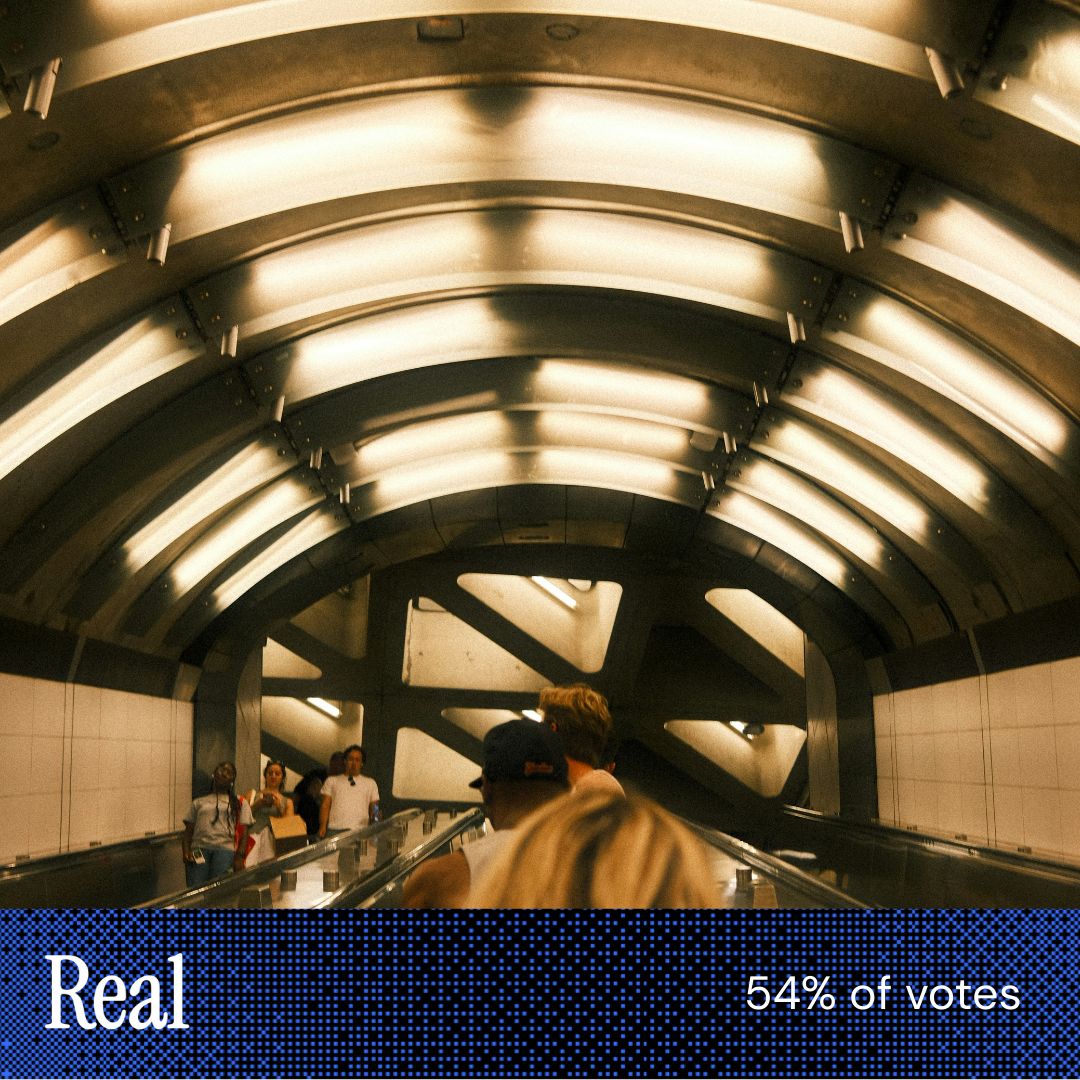 | “The positioning and placement of the overhead lights in [the other image] seems random, like a shotgun blast pattern, and makes no sense. It's similar to the problem of six fingers on models.” “I can't imagine any sane human designing a long, steep escalator like [the other image] without putting obstacles to prevent people from sliding down! Teenagers would love it though!” |
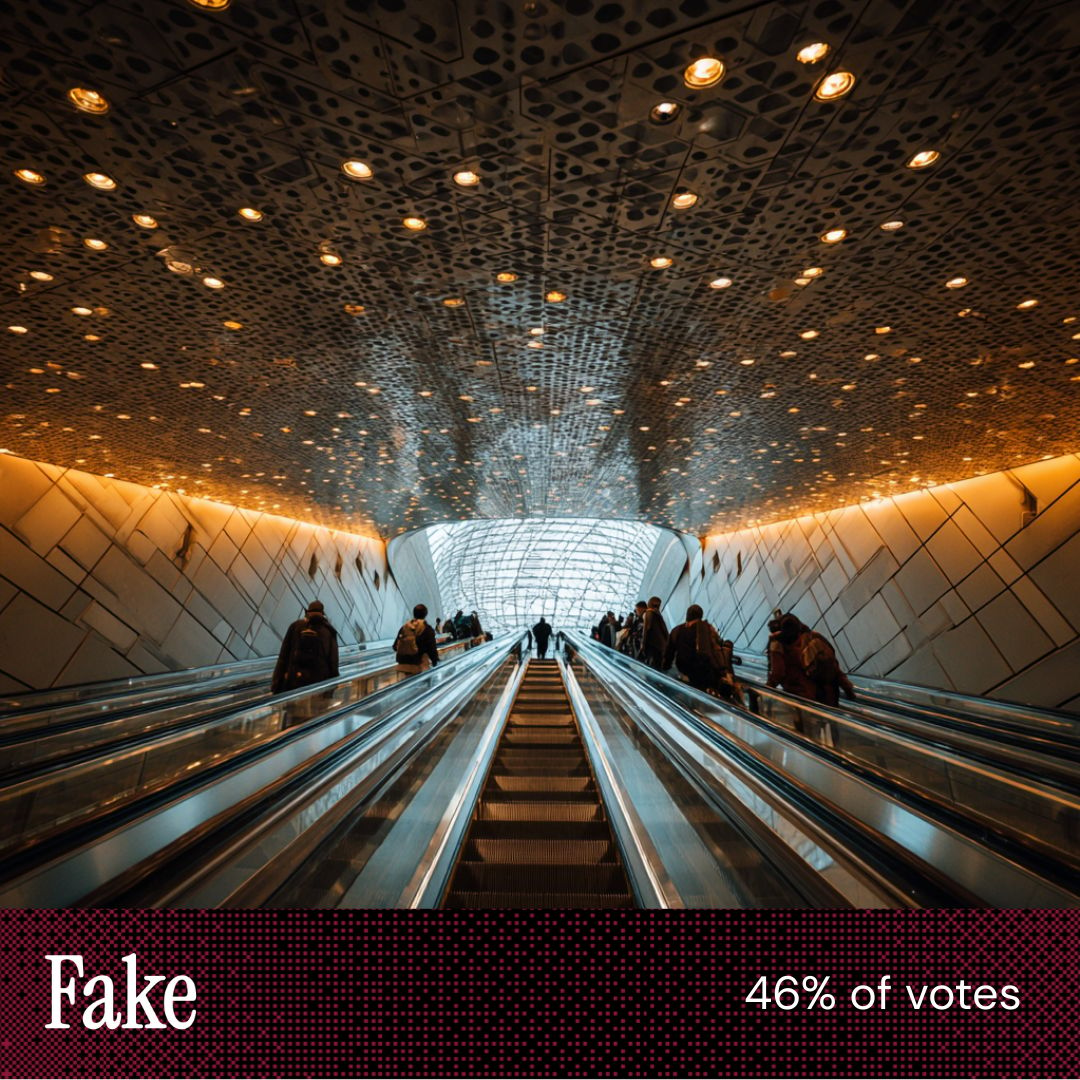 | “I think I’ve seen this in Tokyo.” “The reflections looked wrong to me in the other image.” “[The other image] has no reflection of the people…” |

The Deep View is written by Faris Kojok and The Deep View crew. Please reply with any feedback. Thanks for reading today’s edition of The Deep View! We’ll see you in the next one.
Take The Deep View with you on the go! We’ve got exclusive, in-depth interviews for you on The Deep View: Conversations podcast every Tuesday morning.

If you want to get in front of an audience of 450,000+ developers, business leaders and tech enthusiasts, get in touch with us here.

